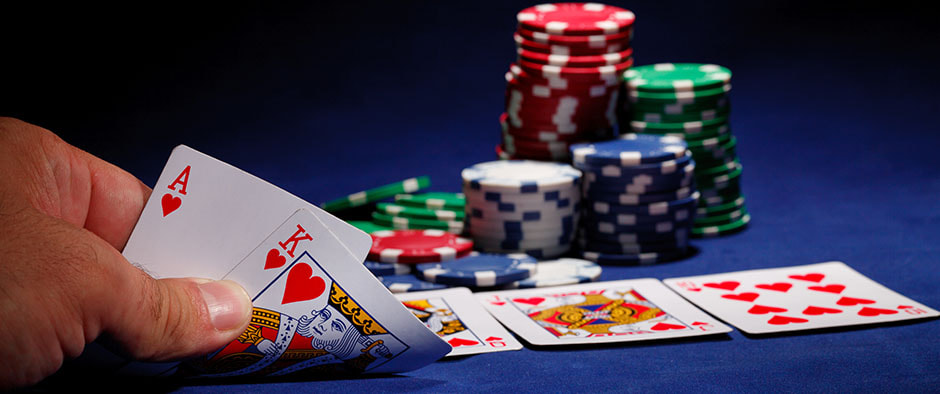Innate Aces: The Enigma of Being Naturally Skilled at Poker
Delving into the realm of poker, a game renowned for its blend of skill, psychology, and a touch of luck, it’s intriguing to explore why some individuals exhibit a natural prowess at the poker table. Is it a matter of genetics, an innate understanding of the game, or a combination of various factors?

The Psychology Behind Poker Prowess
Poker isn’t just a game of chance; it’s a psychological battlefield. Players with a natural aptitude for reading others and understanding psychological nuances tend to excel. They are adept at deciphering subtle cues, from a twitch of the eye to a slight hesitation in betting, using these insights to their strategic advantage. These skills, often intuitive, align with emotional intelligence, a key component in poker’s high-stakes environment.
Natural Talent or Learned Skill?
While experience and practice are crucial, there’s a compelling case for inherent talent in poker. Natural poker players often exhibit an innate understanding of the game’s mechanics and an instinctual grasp of strategy. While enhanceable through practice, these skills can sometimes seem preordained which can possibly give them an advantage at the best online betting sites.
Patience and Discipline: The Cornerstones of Poker Success
Patience is a virtue in poker. Successful players understand that not every hand is worth playing. They wait for the right cards to strike, embodying the essence of strategic patience. Similarly, discipline acts as a secret weapon. Top poker players don’t let emotions dictate their decisions; instead, they stick to their strategies, making choices based on logic and probability and separating themselves from amateurs.
Mathematical Mindset: A Key to Poker Success
Poker is also a game of numbers. Players with a natural talent for mathematics can quickly calculate odds, understand probability, and make decisions that maximize their winning chances. This mathematical prowess, sometimes innate, gives certain players a distinct edge in the game.
Analytical Skills and Adaptability
Analytical skills are essential for assessing situations at the poker table. Good players constantly evaluate their opponents, picking up on betting patterns, and make smart decisions based on available information. Furthermore, adaptability is crucial. Great players show their ability to adapt and adjust strategies based on changing circumstances.
Emotional Control and Bankroll Management
Emotional control is key in poker. Good players know how to control their emotions, understanding that rational decisions lead to success. Equally important is bankroll management. Effective funds management can weather temporary downswings and ensure enough chips to seize golden opportunities.
Reading People and Risk Assessment
A good poker player has a knack for reading opponents, picking up on subtle clues that reveal their intentions. Risk assessment is also a crucial skill. Good players assess and manage risks, weighing the potential gain against the potential loss in any given situation.
Laser Focus and Continuous Learning
Poker requires intense focus and concentration. Players must be able to tune out distractions and stay locked in the zone. Even a momentary lapse in concentration can be costly. Moreover, the greatest poker players never stop learning. They are eternal students of the game, always seeking to improve and refine their skills.
The Psychology of Poker
Understanding the psychology of poker can elevate a player’s game. This involves reading human behavior, recognizing and mitigating cognitive biases like confirmation bias and sunk cost fallacy, and mastering emotional control to avoid tilt. Risk tolerance and decision-making under uncertainty are also key psychological aspects of poker.
Bluffing: The Art of Deception and Persuasion
Bluffing is a captivating poker element, deeply rooted in psychology. To bluff successfully, players must convince their rivals that their hand is superior. This requires a profound understanding of human dynamics and the ability to manipulate perceived truths.
Key Traits of Naturally Talented Poker Players
- Intuitive Understanding: A natural grasp of game dynamics and strategy.
- Psychological Insight: Ability to read opponents and understand their motivations.
- Mathematical Acumen: Quick and accurate calculation of odds and probabilities.
- Emotional Control: Maintaining composure and making rational decisions under pressure.
- Patience and Discipline: Knowing when to play and when to fold, sticking to a strategic plan.
- Analytical Skills: Assessing situations and making smart decisions.
- Adaptability: Adjusting strategies based on the game’s flow.
- Bankroll Management: Effectively managing funds for long-term success.
- Focus and Continuous Learning: Staying concentrated and continually improving one’s skills.
Famous Poker Players and Their Career Achievements
In the world of poker, certain players have risen above the rest, carving out legendary careers and leaving indelible marks on the game. These individuals are not just players; they are masters of strategy, psychology, and skill, transcending the conventional boundaries of the game. Their achievements, style, and contributions have made them icons, inspiring new generations of players. Below, we explore some of these remarkable personalities, delving into their unique journeys and the lasting legacies they have created in the world of poker.
Stu Ungar
Stu Ungar, known for his early aptitude for card games, won the World Series of Poker (WSOP) Main Event three times and earned five WSOP bracelets, making him one of the greatest poker players of all time.
Phil Ivey
Phil Ivey, renowned for his aggressive style and ability to read opponents, has won 10 WSOP bracelets and is a member of the Poker Hall of Fame despite controversies in his career.
Daniel Negreanu
Daniel Negreanu, “Kid Poker,” is a Canadian professional poker player who has won six WSOP bracelets and two World Poker Tour championship titles, known for his friendly demeanor and strategic insights.
Doyle Brunson
Doyle Brunson, the “Godfather of Poker,” has been playing poker for over 50 years, winning 10 WSOP bracelets and two World Poker Tour titles. He is also known for his contributions to poker strategy, including his book “Super/System.”
Vanessa Selbst
Vanessa Selbst, known for her trailblazing career, has won three WSOP bracelets and several World Poker Tour titles. She is also a fierce advocate for social justice.
Bryn Kenney
Bryn Kenney is known for his success in high-stakes tournaments, holding the record for the highest-paid professional poker player.
Justin Bonomo
Justin Bonomo’s career took off with notable wins in high-stakes tournaments, including the WSOP Big One for One Drop.
Daniel Negreanu
Daniel “Kid Poker” Negreanu, with his exceptional ability to read opponents, has earned a significant place among the best poker players of all time.
Erik Seidel
Erik Seidel, an eight-time WSOP bracelet winner, is known for his impressive number of final tables and cashes, contributing greatly to the poker world.
Dan Smith
Dan Smith, known for his quiet but consistent play, has achieved significant success in major poker tournaments.
Stephen Chidwick
Stephen Chidwick, considered one of the best tournament poker players, has achieved considerable success in various high-stakes events.
David Peters
David Peters, a consistent figure on the high roller circuit, has had numerous successes in major poker tournaments.
Fedor Holz
Fedor Holz, a German poker pro, has made a name for himself with his remarkable performances in high-stakes tournaments.
Phil Ivey
Phil Ivey, with his significant presence in high-stakes tournaments and cash games, is considered one of the poker greats.
Jason Koon
Jason Koon, a Triton Poker ambassador, is known for his major successes in Triton high roller tournaments.
The enigma of why some people are naturally good at poker intertwines elements of psychology, mathematics, inherent talent, and learned skills. Natural ability can give players a head start, but it’s the fusion of experience, learning, and personal skill development that truly defines poker mastery.
Understanding the variations of poker is just as crucial as playing them. For more insights into different poker styles, check out the variations of poker and elevate your game to the next level. Whether born with a poker face or developed through practice, the journey to becoming a poker ace is as rewarding as it is challenging.



